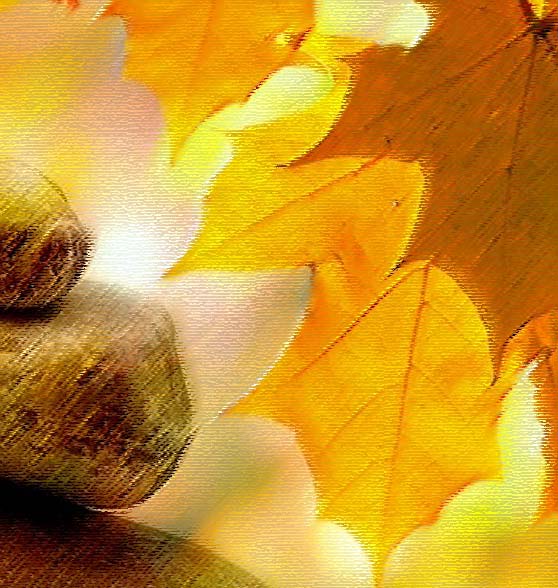To Believe or Not Believe

On any winter Sunday
you can kneel in a polished
pew, watch a priest raise
a thin wafer, a gold plated
chalice high over his head,
believe bread and wine
become flesh, blood. Go
home, sit in front of a TV
with your dips and beer
believing the worst team
can beat the best one.
Days later, I can meet
my brother on the steps
of a hospital in Queens, walk
down empty halls, take
the elevator to the basement,
watch a film about drinking,
driving, recovery and putting
faith in a higher power. Catch
my brother's eye, shake
my head slightly and try
not to laugh while everyone
praises Jesus, God's plan
as John faces jail time.
I want to believe John
when he says he's sorry,
he's worried about our mom,
what our dead father
would have thought.
I'm afraid he's only sorry
he got caught, worried
how he'll get place to place
without a car, not scared
enough to stop drinking,
like me, he may be too old
and lonely to change.
At work, I'm in the middle
of an investigation, trying
to find out if two workers
spent last Saturday night
from 8-9:00, after showers
and medication, having sex
in the bedroom where three
of the retarded guys sleep.
Everyone was talking and
I didn't know who or what
to believe, how to tell the truth
from the lies, even try to guess
what's been completely left out.
Even when me and Suzanne
were completely in love, alone
in the residence, we never
went that far. Maybe a brush
against each other, her hips,
my shoulder, a finger tracing
lips, my hands sliding down
her side, one simple chaste
kiss. Back then I was certain
there was plenty of time,
I believed she'd leave Bill
and we'd end up together.
Now I know how easy
it would have been, how
no one would have known
and I wouldn't spend another
moment trying to imagine
how amazing it would have felt.
Tonight, I want to believe
this beautiful young woman
with the prettiest, darkest eyes
I can ever remember seeing
is looking at me the same way
I am looking at her. Walking
to her favorite nearby restaurant,
sitting at a corner table,
we talk about poetry, Jakob
and Bob Dylan, the tattoo
on her back. She laughs a lot,
listens closely and leans in,
tells a secret or two, describes
the chocolate cake she wants
so badly. The waitress apologizes,
explains they never have any
on Mondays. I'm hoping
we'll sit here again, maybe
next Friday. She'll reach
across, feed me a forkful
and I'll believe it's the best
cake I've ever tasted. This time,
when we linger at the mouth
of the subway, it will turn into
slow kisses, a bumpy uptown
cab ride, a three day weekend.
Of course, I remember opening
that hand written letter
from Helen after eight years
of silence, fitting my own
note in an envelope, walking
to the mail box. I flew
to Maine, talked all night
and day, in and out of bed,
and decided to believe her
when she explained everything
was different and she swore
she'd never hurt me again.
Besides, I was free falling
myself, hurtling toward her
and her son, this beautiful,
fascinating, autistic 5 year old.
Even when it ended harsher
and sadder than the first time,
I wanted to believe that me
and Jesse had connected,
that we meant something
important to each other.
I do my best to stay part
of Jesse's life: sending gifts,
visiting four, five weekends
a year, blowing up air mattresses,
ceaselessly climbing in and out
of their blue car, blindly following
the endless two lane highways
and back roads that make up
the secret maze mapped out
in the deepest parts of Jesse's
ever anxious heart and mind.
Sometimes we stop to roll
or sled down hills, rip books
and magazines for relaxation
eat chicken fingers, bad Maine
pizza, shoot hoops, ride bikes,
spend days at Great Escape
wallowing in Jesse's delight
as he rides every scary ride
in the place twice while never
knowing if he misses me
when I'm back in Brooklyn.
On my last visit, Jesse
sat still, stared at a keyboard
for fifteen minutes and typed
out words while a teacher held
his forearm for support, helped
lift his finger after he pecked
each letter. She kept her eye
on the screen too, tightened
or lessened the pressure
on Jesse's arm anytime
he resisted or tried to race
too fast and I wondered
how he could spell words
he needs help to read.
Fifteen, twenty years ago,
Facilitative Communication
was hailed as a miracle until
every objective study demonstrated
it was the facilitator guiding
the kid's hand subconsciously.
But Helen, Jesse's teachers
and respite workers are all excited
about his progress and I'm
hoping what I believe is wrong.
When Jesse typed
he wanted to talk to me,
I leaned forward. He spelled
he was excited to see me
and I told him I missed him,
asked what he wanted to do
this weekend. He typed
he's glad I keep coming
so far to see him, even
if he can't always show
how he feels, sometimes
his autism gets in his way,
but he believes I am his dad.
I didn't know what to say.
More than anything, I wanted
to believe it really was Jesse
who was writing to me, that
this is how he feels. I took
an index card, printed big
capital letters saying
"I wish I was your father,
and don't worry, I'll do
anything I can for you
anyway." I underlined it
with my finger slowly,
made Jesse read it out loud,
hoped he believed me.

The Piker Press moderates all comments.
Click here for the commenting policy.